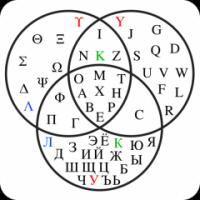Poruke: 17
Jezik: English
Fraqtive42 (Prikaz profila) 18. veljače 2011. 23:10:53
This is what I think it is:
Mia hejmlaboro devos finati antaŭ morgaŭon.
Is there anything that I'm doing wrong?
Thanks!

erinja (Prikaz profila) 18. veljače 2011. 23:40:26
...so when tomorrow comes, you will still be furiously working away at your homework!
It is generally not recommended to combine the participle endings with a verb, although it is technically allowed and people do it in a few cases.
I suggest "Mia hejmtasko devas esti finita antaŭ morgaŭ"
That's if you have only one homework assignment. If you have more than one ("homework" is both singular and plural) then you would say "miaj hejmtaskoj".
Fraqtive42 (Prikaz profila) 19. veljače 2011. 00:33:59

Thanks you for your help!
I see the mistakes that I made; with the direct object, with the participle, and with the awkwardly combined participle ending.
Mustelvulpo (Prikaz profila) 19. veljače 2011. 05:31:52
Fraqtive42:I see the mistakes that I made; with the direct object, with the participle, and with the awkwardly combined participle ending.I agree that the participle endings are often awkward and avoid them unless they are needed for clarity. In this case, if you wish to avoid that construction, "Mi devas fini mia(j)n hejmtasko(j)n antaŭ morgaŭ" expresses the idea equally as well.
darkweasel (Prikaz profila) 19. veljače 2011. 09:43:59
erinja:If you have more than one ("homework" is both singular and plural) then you would say "miaj hejmtaskoj".... and finitaj.
sudanglo (Prikaz profila) 19. veljače 2011. 11:08:16
So if there is a possibility that you might subcontract your homework, you might want to use the passive.
However since the likelihood is that YOU will have to finish it, the obvious way to express the idea in Esperanto is 'mi devos fini ĝin antaŭ morgaŭ'
Miland (Prikaz profila) 19. veljače 2011. 15:57:32
Fraqtive42:Trying to translate the phrase "My homework must be finished before tomorrow." .. Is there anything that I'm doing wrong?Apart from Erinja's comment, I would say that you are trying to translate word-for-word. Try to go for the meaning. Here's another two suggestions. As you can see by now, there are many ways of putting the same thing:
1. Mi devas fini mia(j)n hejmtasko(j)n hodiaŭ.
2. Mia(j) hejmtasko(j) finendas ĉi-tage.
erinja (Prikaz profila) 19. veljače 2011. 19:14:57
Fini is a transitive verb, so the homework can't be the subject of "fini" (unless it's one of those jokes, "In Soviet Russia, the homework finishes you!")
You could say 'Miaj hejmtaskoj finiĝendas' (they must become finished) but that is unnecessarily complex in my opinion.
And there's no point in saying 'ĉi-tage' rather than 'hodiaŭ', that sounds a bit strange as well.
Miland (Prikaz profila) 19. veljače 2011. 20:26:22
erinja:Finendi means "must finish"..I believe it means "must be finished". The suffix -end is attached to transitive verbs (as PMEG says) to show that an act pertaining to their object must be done; La kotizo estas pagenda, "The dues must be paid". See para 1183 of Butler's Step by step, and try putting enda in the tekstaro.
erinja:.. there's no point in saying 'ĉi-tage' rather than 'hodiaŭ', that sounds a bit strange as well.I am showing different ways of putting the same thing; that's the point of what I am doing.
Ĉi-tage means "this day" or "on this day". I don't find Churchill's "Action this day" strange!
matrix (Prikaz profila) 20. veljače 2011. 07:03:22
Miland:Mia(j) hejmtasko(j) finendas ĉi-tage.“-end” is used to compose participles, so it must be used in passive voice.
It could be:
[LISTO]
in passive voice “Mia hejmtaskaro estas finenda antaŭ morgaŭ.”
in active voice “Hejmtaskaron mi devas fini antaŭ morgaŭ.”[/list]



